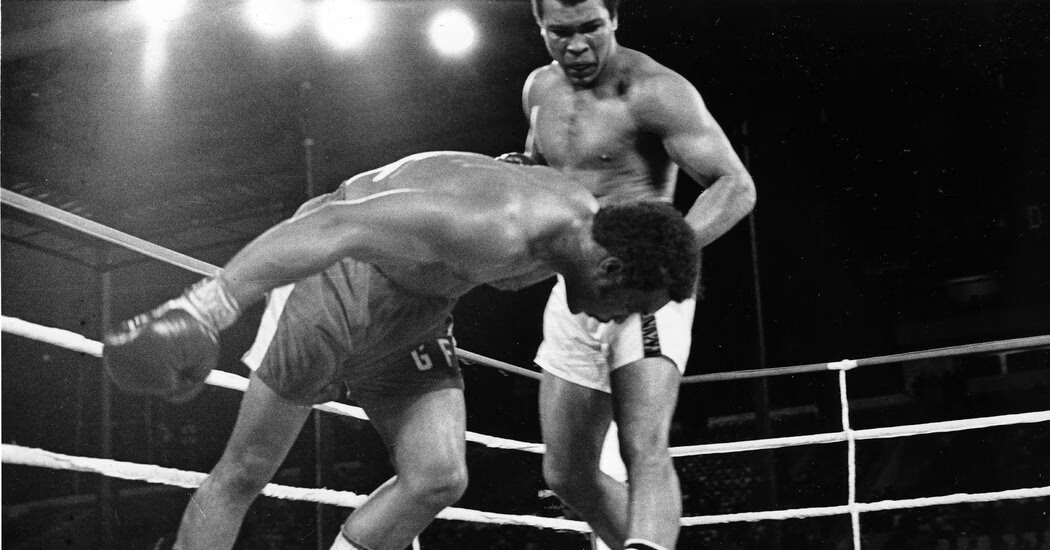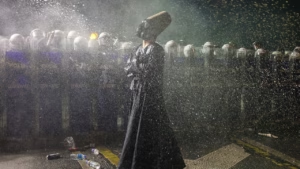The country of Zaire, now known as the Democratic Republic of Congo, celebrated after its president, Mobutu Sese Seko, arranged for what might be the largest boxing fight ever: Muhammad Ali, a fading legend, against George Foreman, the ruthless world champion in the heavyweight category.
Mobutu, a ruthless dictator, saw this as a chance to present Zaire as a stable and powerful nation aiming forprogress. He believed it would be a way to showcase the country’s potential to the world with its 22 million inhabitants.
During the promotion of the fight, Ali, known for his boldness, made a provocative statement to journalists who doubted him, claiming they would be cooked in a pot if they came to Zaire. Following this incident, Mobutu’s aide called and advised against promoting tourism in such a negative manner, the aide emphasized the need to combat the misconception of cannibalism in Africa.
The fight, referred to as the Rumble in the Jungle, ultimately became a global event with consequences extending beyond the realm of boxing. As Ali secured victory in the eighth round, using his famous “rope-a-dope” strategy, it not only marked the turning point in Foreman’s career but also shifted the dynamics of their friendship. Foreman’s aggressive nature subsided after the defeat, making him more approachable and, according to some, contributing to his later success as a personality associated with grilling.
In addition to showcasing the talent of Ali and Foreman, the event brought attention to Zaire and unified its diverse population of over 200 ethnic groups. However, despite these positives, the event did not lead to the economic prosperity promised by Mobutu.
Mobutu’s obsession with being recognized as a significant global leader played a significant role in his promotion of the fight as a means to improve his country’s image after years of turmoil.
The event inspired pride among the public, as seen through Dr. Kikaya Bin Karubi, a Congolese politician and academic, who noted their shared feeling of national pride. The government made significant investments, putting on a music festival to attract top artists. However, despite these efforts, Zaire’s economy still didn’t flourish as expected, falling short by $4 million.
The positive impact of the fight, however, manifested years later when Dr. Kikaya studied in the United States and noticed the lasting memory and reputation the event had left in the minds of those who witnessed it.
Ali’s charisma played a significant role in generating the excitement leading up to the fight, particularly when he arrived in Zaire and learned that the locals disliked the Belgians, he referred to Foreman as “a Belgian” and proclaimed the event with the chant “Ali, bomaye!” that became the defining phrase of the event.
Source: https://www.nytimes.com/2025/03/23/world/africa/george-foreman-muhammad-ali-rumble-jungle.html





